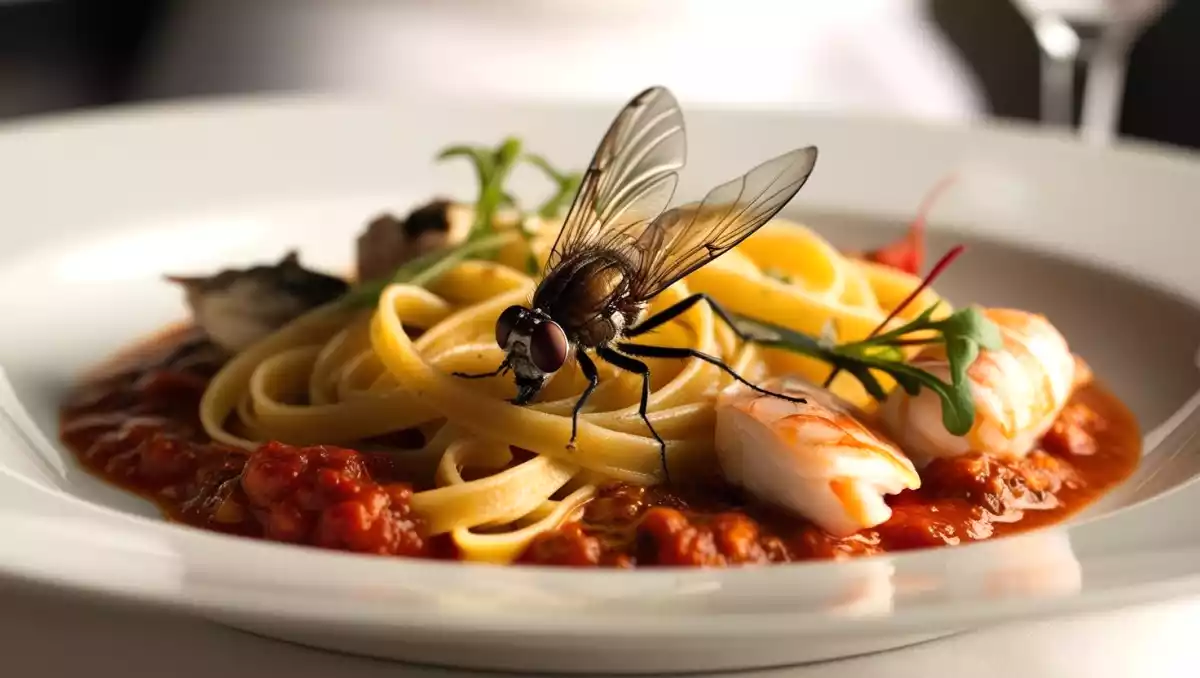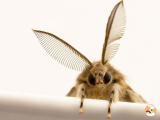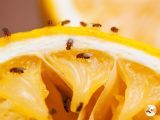What really happens when a fly lands on your food and how to avoid health risks!

Houseflies are ubiquitous insects that, although small, can pose significant risks to human health when they come into contact with our food. Understanding what happens when a fly lands on food is essential for adopting preventive measures and ensuring food safety.
What happens when a fly lands on your food?
Flies don't have teeth or jaws to chew, so in order to feed, they release digestive enzymes onto the food to dissolve it and then suck up this liquid substance. This regurgitation process can deposit microorganisms present in the fly's digestive system directly into the food. (source: minhavida.com.br)
In addition, flies often defecate while eating, further increasing the potential for contamination. They also carry pathogens on their bodies and on the hairs of their legs, acquired by landing on decaying materials, garbage and feces. When they come into contact with food, these microorganisms can be transferred, posing a health risk. (source: uol.com.br)
What are the health risks?
Studies indicate that flies can harbor up to 130 types of pathogens, including bacteria such as Salmonella, Escherichia coli and Staphylococcus aureus, as well as fungi, viruses and parasites. Eating food contaminated by these agents can lead to diseases such as food poisoning, dysentery, cholera and other gastrointestinal infections. (source: oglobo)
Should I discard the food if a fly lands on it?
If a fly briefly lands on your food, the risk of significant contamination is relatively low, especially if you have a healthy immune system. However, if the food has been exposed for a prolonged period or if several flies have had access to it, it is safer to discard it to avoid possible illness. (source: uol.com.br)
How to prevent contamination by flies?
To minimize the risk of contamination by flies:
- Maintain hygiene: Clean kitchen surfaces regularly, don't leave leftover food exposed and keep garbage cans tightly closed.
- Store food properly: Use closed containers or cover food to prevent flies from gaining access.
- Use physical barriers: Install screens on doors and windows to make it difficult for these insects to enter.
- Pest control: In cases of infestation, consider seeking professional pest control services.
Maintaining these habits contributes to food safety and reduces the risk of fly-borne diseases.
Read also:
 Mirella Mendonça
Mirella Mendonça

Comments